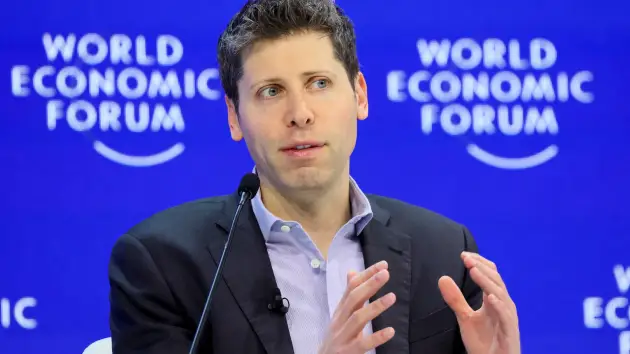In an unexpected turn of events, OpenAI CEO Sam Altman expressed his surprise at The New York Times’ lawsuit against the company, stating that their artificial intelligence models do not require training on the publisher’s data. Describing the legal action as peculiar, Altman revealed that OpenAI had been engaged in productive negotiations with the Times before the lawsuit became public. Altman disclosed that OpenAI had expressed a willingness to pay a substantial amount to the outlet for the privilege of displaying their content in ChatGPT, the company’s widely used AI chatbot.
Addressing the issue at the World Economic Forum in Davos, Altman emphasized that the Times’ lawsuit is not a primary concern for OpenAI, and reaching a resolution with the publisher is not their top priority. He clarified, “We are open to training [AI] on The New York Times, but it’s not our priority,” asserting that training on a specific source does not significantly impact OpenAI’s capabilities.
The Times filed a lawsuit against both Microsoft and OpenAI, alleging copyright infringement through the use of its articles as training data for AI models. The publication seeks accountability for “billions of dollars in statutory and actual damages” related to the “unlawful copying and use of The Times’s uniquely valuable works.” The lawsuit presented examples where ChatGPT produced near-identical versions of the publisher’s stories, a claim OpenAI disputes.
Ian Crosby, lead counsel representing The New York Times, responded to Altman’s statements, asserting that OpenAI is admitting to using copyrighted content to train its models and effectively benefiting from the paper’s journalistic investments, which he deems “the opposite of fair use.”
The legal action has raised concerns about potential claims from other media publishers against OpenAI. Some outlets are exploring partnerships with OpenAI to license their content rather than pursuing legal battles. Axel Springer, for instance, has a licensing agreement with OpenAI.
OpenAI responded to the lawsuit, acknowledging instances of “regurgitation” and stating their commitment to minimizing this occurrence. Altman’s recent comments echo his earlier remarks disputing the Times’ allegations and expressing optimism about future opportunities to monetize news content.
Altman concluded by addressing the possibility of refining OpenAI’s GPT models to prevent regurgitating content word for word, acknowledging the complexity of the issue and expressing confidence in reducing such instances significantly.

